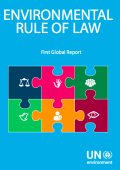
This report discusses the range of measure that countries are adopting to address the implementation gap when it comes to environmental regulations and to ensure that rule of law is effective in the environmental sphere.
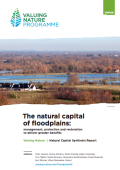
This report reviews the existing evidence, develops a matrix to inform land-use choices distilling the key information into a briefing document.
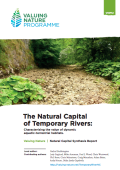
This report provides an evidence-informed characterization of the natural assets in temporary rivers.
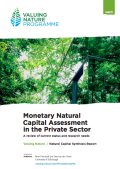
This report reviews 42 case studies of businesses who have publicly shared their experiences of natural capital assessment.
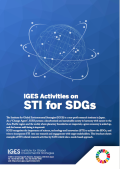
This brochure shows examples of research related to science, technology, and innovation (STI) activities carried out by Institute for Global Environmental Strategies (IGES) that take an integrated approach to sustainable development through Sustainable Development Goal (SDG) interlinkages. To facilitate integrated SDG policymaking and implementation, IGES developed an innovative SDG Interlinkages Analysis and Visualisation Tool.
